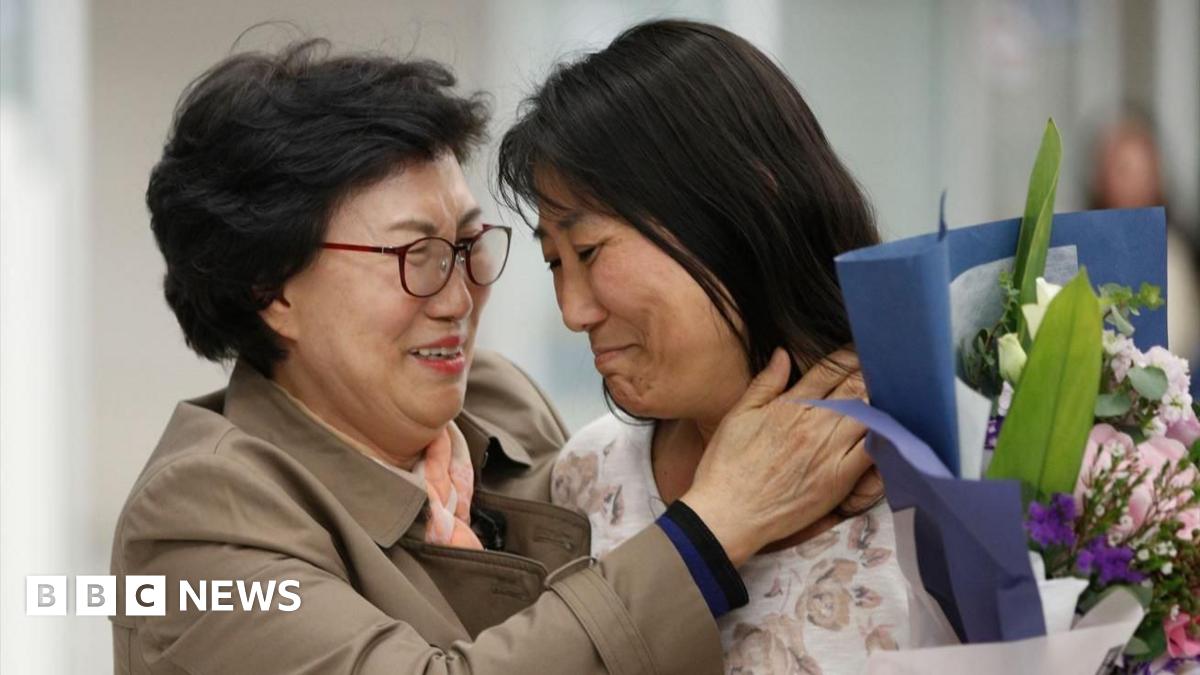South Korea's Adoption History: Challenges, Reforms, And Ongoing Debates

Welcome to your ultimate source for breaking news, trending updates, and in-depth stories from around the world. Whether it's politics, technology, entertainment, sports, or lifestyle, we bring you real-time updates that keep you informed and ahead of the curve.
Our team works tirelessly to ensure you never miss a moment. From the latest developments in global events to the most talked-about topics on social media, our news platform is designed to deliver accurate and timely information, all in one place.
Stay in the know and join thousands of readers who trust us for reliable, up-to-date content. Explore our expertly curated articles and dive deeper into the stories that matter to you. Visit Best Website now and be part of the conversation. Don't miss out on the headlines that shape our world!
Table of Contents
South Korea's Adoption History: Challenges, Reforms, and Ongoing Debates
South Korea's adoption history is a complex tapestry woven with threads of societal change, economic hardship, and evolving ethical considerations. For decades, the country was a significant source of international adoptions, sending thousands of children overseas. However, this practice has been marked by both triumphs and significant controversies, leading to substantial reforms and ongoing debates about the future of adoption in the nation.
A Legacy of Abandonment and International Adoption:
The surge in international adoptions from South Korea began in the aftermath of the Korean War (1950-1953) and continued through the rapid economic growth of the 1960s and 70s. Many children were abandoned due to poverty, illegitimacy, or societal stigma surrounding single motherhood. These factors, coupled with a relatively underdeveloped domestic adoption system, resulted in a large number of Korean children being adopted by families primarily in the United States, Canada, and Europe. This period saw the establishment of numerous adoption agencies, some of which have since faced scrutiny over their practices.
The Dark Side of the "Miracle on the Han River":
While the "Miracle on the Han River" propelled South Korea to economic prosperity, it inadvertently cast a shadow over the lives of many children. The rapid societal shift led to a disconnect between traditional values and the realities of a modernizing nation. This resulted in a considerable number of unwanted pregnancies and subsequently, abandoned infants.
Ethical Concerns and Systemic Issues:
Over the years, several ethical concerns have been raised regarding South Korea's adoption practices:
- Lack of Transparency: Concerns persist about the transparency of adoption processes in the past, with allegations of inadequate record-keeping and a lack of information provided to birth parents and adoptees.
- Profit-Driven Agencies: Some adoption agencies have faced accusations of prioritizing profit over the well-being of children, leading to questionable practices and inadequate oversight.
- Birth Parent Rights: The rights and well-being of birth mothers often received insufficient attention, leaving many with unresolved trauma and a sense of loss.
Reforms and the Shift Towards Domestic Adoption:
In recent decades, South Korea has undertaken significant reforms to address these issues. There has been a concerted effort to prioritize domestic adoption, reducing the number of children leaving the country. The government has also implemented stricter regulations on adoption agencies and increased transparency in the adoption process. Efforts are underway to improve support services for birth parents and to create a more comprehensive system for tracing and reunification.
The Ongoing Debate: Balancing Rights and Needs:
Despite these positive developments, challenges remain. The ongoing debate centers on:
- Access to Records and Reunification: Many adoptees are actively seeking access to their birth records and reunification with their birth families, a process often hampered by bureaucratic hurdles and emotional complexities.
- Trauma and Healing: Addressing the intergenerational trauma associated with adoption remains a crucial task, requiring significant investment in mental health services and support programs for both adoptees and birth parents.
- The Future of International Adoption: While international adoption continues, its scale is significantly reduced, highlighting the nation's commitment to domestic adoption.
Looking Ahead:
South Korea's journey towards a more ethical and transparent adoption system is ongoing. Continued efforts are needed to ensure the well-being of all parties involved – birth parents, adoptees, and adoptive families. Open dialogue, policy improvements, and increased support services are essential to addressing the lingering complexities and building a future where all individuals impacted by adoption can find healing and reconciliation. Further research into the long-term effects of adoption, both domestically and internationally, will also be crucial for informing future policy decisions. This continuous process of learning and adapting is vital for ensuring a just and compassionate approach to adoption in South Korea.

Thank you for visiting our website, your trusted source for the latest updates and in-depth coverage on South Korea's Adoption History: Challenges, Reforms, And Ongoing Debates. We're committed to keeping you informed with timely and accurate information to meet your curiosity and needs.
If you have any questions, suggestions, or feedback, we'd love to hear from you. Your insights are valuable to us and help us improve to serve you better. Feel free to reach out through our contact page.
Don't forget to bookmark our website and check back regularly for the latest headlines and trending topics. See you next time, and thank you for being part of our growing community!
Featured Posts
-
 1895 To 2024 Rockies Start Sets A New Low
May 25, 2025
1895 To 2024 Rockies Start Sets A New Low
May 25, 2025 -
 Phillies Rally In 9th 10th And 11th For Thrilling Victory
May 25, 2025
Phillies Rally In 9th 10th And 11th For Thrilling Victory
May 25, 2025 -
 Fact Check Trumps Inaccurate Statement On South African Burial Site During Ramaphosa Meeting
May 25, 2025
Fact Check Trumps Inaccurate Statement On South African Burial Site During Ramaphosa Meeting
May 25, 2025 -
 Federal Judge Mandates Return Of Guatemalan Asylum Seeker Wrongfully Deported By Trump Administration
May 25, 2025
Federal Judge Mandates Return Of Guatemalan Asylum Seeker Wrongfully Deported By Trump Administration
May 25, 2025 -
 I Os 18 5 Six Immediate Steps For Improved I Phone Performance
May 25, 2025
I Os 18 5 Six Immediate Steps For Improved I Phone Performance
May 25, 2025
